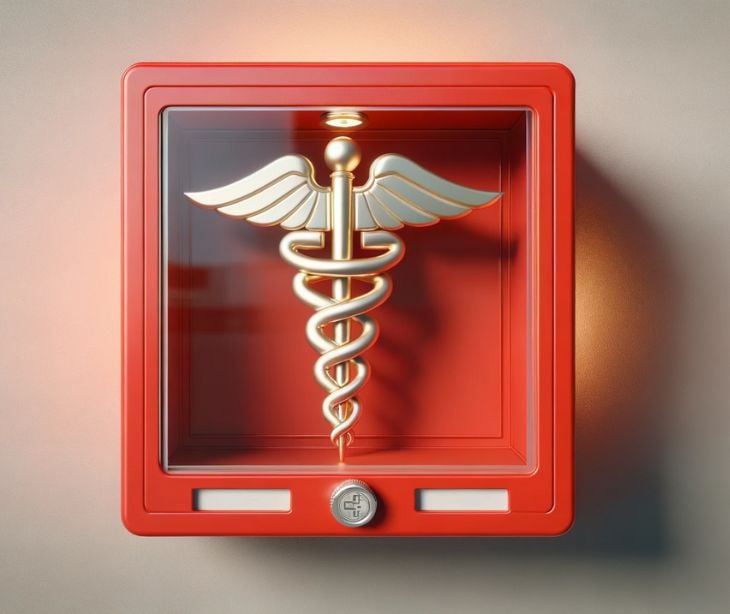
The Health Insurance Portability and Accountability Act (HIPAA) was enacted to safeguard the privacy and security of patients' protected health information (PHI). However, despite its well-intentioned purpose, HIPAA has often been misunderstood and misapplied, leading to unintended consequences that can negatively impact patient care and erode the trust between healthcare providers and their patients.
Understanding HIPAA misuse and abuse
HIPAA is misused or abused when its rules and regulations are twisted or misinterpreted for various reasons. This can happen when individuals, healthcare providers, or organizations use HIPAA as an excuse to withhold information, even when the law does not actually prohibit the disclosure of such information.
One of the primary drivers of HIPAA misuse is a lack of adequate understanding or training among healthcare professionals and the general public. The complexity of HIPAA's provisions, coupled with the spread of misinformation, has contributed to a widespread misperception that the law restricts any inquiry about an individual's health information, regardless of the context or the parties involved.
Common scenarios of HIPAA misuse or abuse
Unnecessary secrecy in healthcare settings
Healthcare providers may invoke HIPAA erroneously, leading to unnecessary secrecy and distress for patients and their loved ones. For instance, in one case spotlighted in a New York Times article, a resident's absence led to concerns about her whereabouts and safety, but the staff refused to disclose any information due to a misinterpretation of HIPAA. Similarly, a scenario revealed where a hospital refused to provide a patient's medical history over the phone, citing HIPAA, even though the information could have helped prevent the administration of potentially harmful drugs.
Inhibiting health information exchange during crises
HIPAA misunderstandings can also stop the timely exchange of necessary medical information during emergencies and crises. For example, during the COVID-19 pandemic, some politicians, such as Representative Marjorie Taylor Greene, claimed that revealing their vaccination status violated their HIPAA rights, despite the fact that HIPAA does not apply to individuals outside the healthcare industry.
Furthermore, the misinterpretation of HIPAA led to delays in releasing important updates on the condition of victims during the Pulse Nightclub shooting incident in Orlando. In this case, the mayor sought a HIPAA waiver to allow doctors to provide updates, but the Department of Health and Human Services (HHS) clarified that such a waiver was unnecessary, as HIPAA permits limited health information disclosure in emergencies.
Misinterpretation in non-healthcare settings
HIPAA misunderstandings can also extend beyond the healthcare industry. For instance, a minister wrongly explained that HIPAA prevented ailing parishioners' names from appearing in a church bulletin, even though HIPAA only applies to covered entities, their business associates, and the subcontractors of business associates.
Read more: Common HIPAA compliance issues and concerns
Why is HIPAA often misunderstood?
The widespread misunderstanding of HIPAA can be attributed to several factors, including:
- Misinformation spread: The dissemination of inaccurate information about HIPAA's rules and standards has contributed to the perpetuation of wrong mindsets, both among healthcare professionals and the general public.
- Inadequate education: The complexity of HIPAA's intricate details and the lack of education and training programs have made it challenging for individuals to grasp the nuances of the law.
- Misinterpretation by covered entities: Healthcare providers, organizations, and other covered entities required to follow HIPAA sometimes contribute to the misunderstanding by misinterpreting or misapplying the regulations.
Ethical implications of HIPAA misuse or abuse
When healthcare professionals prioritize privacy over patient well-being due to a misinterpretation of HIPAA, it can lead to ethical dilemmas. Imagine a scenario where a caregiver's attempts to share medical history are thwarted due to an incorrect interpretation of HIPAA. This can impact patient care and erode the bond of trust between patients and their caregivers.
Legal consequences and reporting
There may be legal consequences for those who knowingly or unknowingly misuse or abuse HIPAA. Patients have the right to report violations to regulatory bodies, prompting investigations and potential legal actions. The penalties for HIPAA violations depend on the extent, nature, and intent of the violation, but the primary goal is to encourage adherence to ethical and legal standards of safeguarding protected health information.
Strategies to prevent HIPAA misuse or abuse
To mitigate the misuse of HIPAA, healthcare providers and organizations must advocate for a proper understanding and application of the law. Some strategies to navigate the fine line between privacy and transparency include:
- Providing HIPAA training: Educating healthcare staff about the nuances of HIPAA and dispelling common myths to ensure proper implementation of the law.
- Promoting ethical information sharing: Encouraging open communication within healthcare teams and seeking patient consent when sharing information can help prevent privacy concerns from overshadowing patient care.
- Empowering patients: Encouraging patients to be active participants in their healthcare journey can foster a collaborative environment and enhance the flow of necessary information.
- Staying updated on HIPAA regulations: Healthcare providers should regularly consult with the HHS to stay informed about the latest HIPAA regulations and guidelines.
Go deeper:
FAQs
What constitutes a misuse or abuse of HIPAA?
Misuse or abuse of HIPAA occurs when protected health information (PHI) is accessed, used, or disclosed in ways that violate the regulations. This includes unauthorized sharing of PHI, accessing records without a legitimate reason, and improper disposal of records.
Can an employer ask for my health information under HIPAA?
Generally, employers are not covered entities under HIPAA and cannot request your health information without your consent. However, they can ask for medical information under certain circumstances, such as for administering health insurance benefits or processing medical leave, but this must comply with other laws like the Americans with Disabilities Act (ADA) and the Family and Medical Leave Act (FMLA).
Are there consequences for healthcare providers who misuse HIPAA?
Yes, healthcare providers and other covered entities that misuse or abuse HIPAA can face serious consequences, including fines, legal action, and loss of licenses. The Office for Civil Rights (OCR) enforces HIPAA regulations and can issue penalties ranging from $100 to $50,000 per violation, with an annual maximum of $1.5 million.
What should I do if I suspect my PHI has been misused?
If you believe your PHI has been misused, you should file a complaint with the OCR. You can also contact the privacy officer at the institution where the misuse occurred. Keeping documentation and evidence of the misuse will help in the investigation.
Can a patient's family members access their health information?
Family members can only access a patient’s health information if the patient has provided explicit authorization or if the family member is a legal guardian or power of attorney. HIPAA requires that patient confidentiality be maintained unless specific permission is granted.
Are there exceptions to HIPAA rules for law enforcement requests?
Yes, there are certain circumstances where PHI can be disclosed to law enforcement without patient consent, such as to comply with a court order, to report a crime, or in cases of abuse or neglect. However, these disclosures must strictly adhere to HIPAA guidelines.
Learn more: HIPAA Compliant Email: The Definitive Guide
Subscribe to Paubox Weekly
Every Friday we'll bring you the most important news from Paubox. Our aim is to make you smarter, faster.



